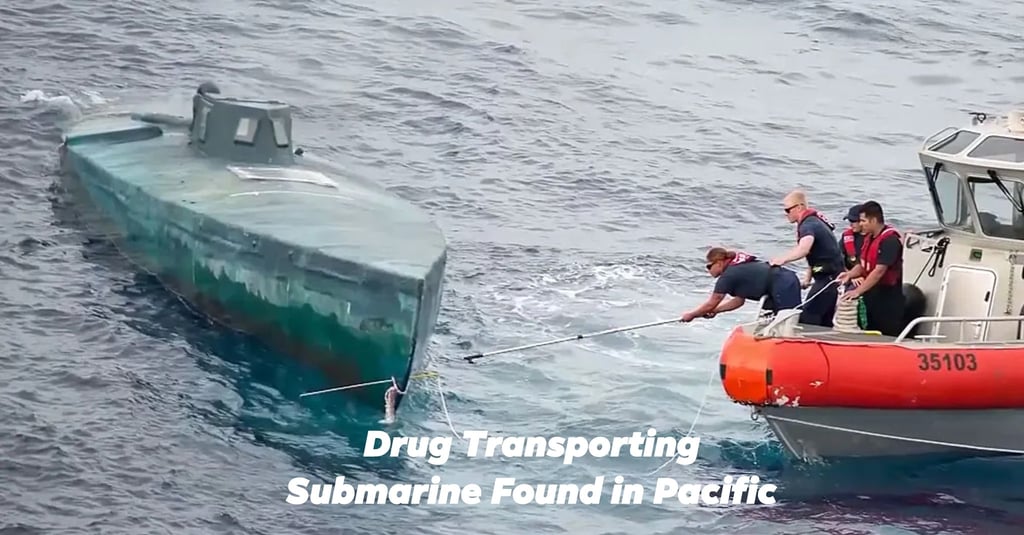Drug Submarine Found in Solomons Raises Pacific Alarm
WORLDFIJI NEWS


A fisherman in the Solomon Islands has made a startling discovery—a suspected narco submarine floating off the coast of Isabel Province.
The 40-foot semi-submersible vessel, designed to avoid radar detection, is believed to have been used for transnational drug smuggling.
The discovery has raised alarm bells across the Pacific, particularly in countries like Australia and Fiji, where concerns about the region’s growing role in the international drug trade are mounting.
Authorities in Australia say the vessel is similar to those used by powerful Latin American drug cartels to move large quantities of cocaine to Australia and New Zealand.
Experts estimate the submarine could carry a payload worth hundreds of millions of dollars.
While no drugs were found onboard, Australian police have called the find the “first concrete evidence” of narco subs operating in the Pacific.
The level of sophistication shown—from the vessel’s fiberglass design to its multiple outboard engines and sealed hatch—indicates a highly organized and well-funded trafficking operation.
This has sparked fears that Pacific Island nations, with their vast and largely unmonitored maritime zones, may become a new front in the global drug network.
Narco submarines—also known as self-propelled semi-submersibles (SPSS)—are covert vessels designed by drug trafficking cartels, primarily in Latin America, to transport massive quantities of cocaine across international waters.
These vessels are low-profile, often built from fiberglass and other lightweight materials, and ride just above the waterline, making them extremely difficult to detect by radar or satellite.
Some are rudimentary, steered manually by small crews with limited air and navigation equipment. Others are sophisticated, custom-built craft capable of long-range travel and are often scuttled after delivery to destroy evidence.
Their discovery in the Pacific is particularly alarming because it indicates an escalation in the scale and reach of transnational drug operations.
Authorities now fear that the Pacific Islands are becoming key transit points in the global cocaine supply chain, posing new challenges for law enforcement in countries like Fiji, Tonga, and Papua New Guinea.